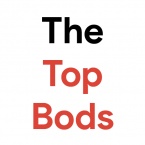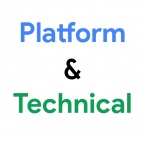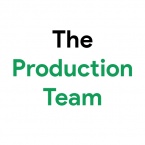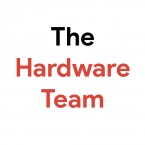Jim Wallace, certification lead
Certification lead Jim Wallace's career in games started in music, working Absolute Entertainment as audio engineer between 1992 and 1995. From there he moved into production, holding these sorts of roles at both Capcom and PlayStation, briefly running his own firm, before returning to Sony as a senior manager in the firms program management team. Over the next 12 years, Wallace rose up to senior producer and eventually headed up format quality assurance for the PlayStation firm. He joined Google last October overseeing the tech firm's certification process.
Relja Markovic, director of engineering
Since the start of 2016, Relja Markovic has been working on Google's games tech, first a the engineering director for VR and AR. He moved to Stadia in 2018 as director of engineering. Prior to Google, Markovic held engineering or technology roles at giant companies including Facebook and Microsoft. He spent nine years at the BIg M between 2002 and 2011 working on Xbox Live, Kinect as well as games including Gears of War and Mass Effect. He returned in 2012 following an 18-month stint at Facebook, joining as CTO for HoloLens and Xbox/PC studios at Microsoft.
Eric Kabisch, head of UX design
The boss of Stadia's user experience team Eric Kabisch has been working in games since 1998, starting out making online games for kids toys. From there he held roles at CollegeClub.com, also designing games, before joining mobile publisher Scopely in 2011 as its UX lead. Kabisch has also dipped his toe into academia, having been a research fellow between 2004 and 2005 at the California Institute of Telecommunications and Information Technology as well as a researcher at Game Culture and Technology Lab and the Labaratory for Ubiquitous Computing and Interaction.
Kabisch joined Google a year ago in April 2018.
Meagan Timney, UX research lead
Most of Stadia UX research lead Meagan Timney's career has been spent in academia one way or another. She has a PhD from Dalhousie University and was a postdoctoral fellow at the University of Victoria. From there she has held design roles at digital agency Marker Seven and book-making platform Blurb, joining employee education firm Inkling in 2013 in its user experience team. From there she moved to Google as senior UX researcher in September 2016, rising to staff UX researcher in November 2018.
Majd Bakar, VP of engineering
In the last 17 years, Majd Bakar has worked at two companies. He joined Microsoft as a senior software development engineer in 2002 having cut his teeth in a similar role at WebTV Networks. His almost-nine years at the Big M saw Bakar working in the firm's various development teams. That was before he joined Google in 2011 as the search giant's VP of engineering. There he worked on hardware products including the Chromecast and Chromecast Audio, but joined Stadia team as VP of engineering having worked on the Project Stream test in October 2018.
Michelle Breman Olson, head of program and technical program management
Michelle Breman has spent 12 years working for Google, starting out as a senior technical account manager back in 2007. From there she has held management roles on Google TV, the firm's GFiber internet infrastructure, its Home and Cast products and now Stadia.
Her career started at Apple in 1990, where she worked as a licensing technical account manager and senior licensing engineering program manager, before she held roles at Microsoft, MetaTV and Ebay.
Colin Boswell, director of engineering
Stadia engineering director is a true industry veteran having started out at Camberley, UK's Digital Integration back in 1984. From there he worked on titles for British games titan Domark at Quixel Development ultimately joining Domark in 1988 as development manager. He worked there over nine years, leaving what was now-called Eidos in1997 to start an 18-year stint at Electronic Arts. He was bought into Google's hardware products division in June 2016 and now works on the firm's Stadia streaming platform.
Sarah Walter, head of user experience research
Walter's career in games stretches back as far as The Sims 2's development at Electronic Arts where she did two fourth-month internships. She was a researcher at Stanford University for close to seven years looking into topics including curriculum design for games development and how people collaborate in games.
She joined Microsoft in 2010 as a user researcher, working into Xbox 360, Kinect, mobile and PC titles. After a brief stint as a freelancer, Walter joined Google's UX team in 2012. In this role she has worked on a plethora of products, such as Home, Chromecast, Wifi and - now - Stadia.
Kuangye Guo, Stadia founding engineer
Kuangye Guo is one of the longest-serving members of staff working on Stadia at Google. The engineering specialist came on board in 2014 and is credited as the founding engineer for Stadia and Project Stream. Before kicking off Google's game streaming business, Guo worked at GPU specialist Nvidia, financial media company Thomson Reuters and cloud games firm CiiNOW.
This is actually the second time that Guo has worked at Google, having worked as a software engineering intern for fourth months back in 2010 working on YouTube transcoding.
Michael McLennan, senior software engineer and tech lead
Michael McLennan's background at Google is in its Fiber internet infrastructure, which he joined the company to work on in September 2015. That followed an 11-year stint as a senior research scientist at Purdue University where he was a director of the open source HUBzero platform for building websites for scientific purposes.
Mahesh Kallahall, principal engineer/director
The man in charge of infrastructure and gamer experience for Google's Stadia platform has been with the firm for over 13 years.
Mahesh Kallahall joined the search and software giant back in 2006 having previously held research roles at Rice University, HP Labs and DoCoMo USA Labs. Before working on Stadia, Kallahall was in charge of networking site reliability, overseeing the tech behind both Google and YouTube.
Andrey Doronichev, director of product management
Having set up several companies in Russia - including an SMS service provider, a property agency and an online bed and home textile store - Andrey Doronichev joined Google in 2007 as product manager, working on the firm's help centre and various YouTube apps. Between 2010 and 2014, he headed up YouTube's mobile division, before moving to a director of product management role for Google's VR team - a role he held until November 2018. At that point, he moved to Stadia in the same position, leading the product team.










